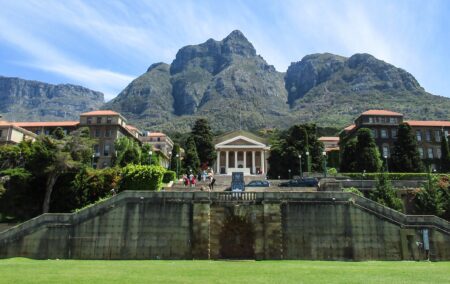Prominent liberals are among the four successful candidates chosen by the Convocation, or body of former students, to represent them on the University of Cape Town (UCT) Council for the next four years.
The four, chosen from a field of 20 candidates, are David Ansara, CEO of the Free Market Foundation and former Executive Director of the Centre for Risk Analysis at the Institute of Race Relations; Mark Oppenheimer, a prominent advocate noted for his work in the field of human rights, particularly freedom of speech; Professor Brian Kantor, a former Dean of the Faculty of Commerce who has also held prominent positions in the private sector, and Kelly Phelps, an independent criminal justice consultant who spent 18 years lecturing on the University of Cape Town’s LLB and LLM programmes.
The result was announced by UCT Registrar Royston Pillay yesterday.
The four will serve on the new UCT Council, which is being constituted to serve from 1 July 2024 to 30 June 2028.
The 30-member Council is a key body. According to the university, its responsibilities include ‘determining the mission, objectives, goals, strategies and policies for the progress of the institution’, and it must ‘also ensure an environment conducive to efficient, effective, economical and ethical attainment of these goals’.
In addition, it ‘has the responsibility of maintaining and ensuring a financially secure, healthy and viable environment and accounting for all decisions taken at UCT, including the submission of the required reports and documents to the Minister of Education’.
Council members include executive officers, other employees of the institution, students, and people who are not staff or students, and are appointed by a wide range of parties.
According to UCT, external members (neither staff nor students of the institution) make up 60% of the total membership.
The Council is chaired by Norman Arendse SC.
Writing in support of the winning candidates on the Daily Friend earlier this month, UCT alumnus Richard Wilkinson wrote of the need for individuals who favoured ‘freedom of speech and academic excellence (to) … be appointed to key positions’ and to be supported in confronting ‘illiberal policies … (so that these) can be decisively reformed’.
He said of the four candidates that he was ‘delighted to see that principled, high-quality people are making a stand’.
Here is the full list of candidates, with their respective vote tallies:
Russell Ally 507
Hugh Amoore 802
David Ansara 803
Oludayo Awe 108
Brian Kantor 1068
Makobetsa Khati 440
Sabakhe Mahlangu 95
Siyanda Makaula 149
Rethabile Makoanyana 218
Edward Maloka 557
Tshediso Matona 516
Andrew Matseke 198
Amos Mboweni 153
Success Sipesihle Mhlanga 216
Siyabonga Mhlongo 168
Vuyane Mholmi 706
Bronwyn Nortje 546
Mark Oppenheimer 949
Kelly Phelps 1173
Simpiwe Sobuwa 182
[Image: https://www.flickr.com/photos/barbourians/22867721059]

